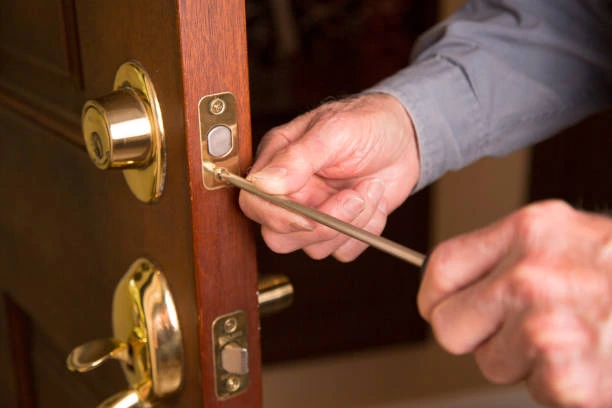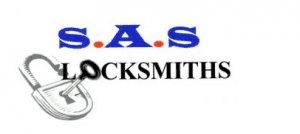Locks are one of the simplest yet most essential parts of home security. When they fail, the consequences can range from mild inconvenience to serious safety risks. For homeowners and renters across Melbourne, keeping door and window locks in top shape isn’t just about convenience — it’s a core part of everyday safety.
In this article, we’ll unpack everything you need to know about lock repairs in Melbourne, from average costs and emergency services to easy maintenance tips that can help you avoid expensive callouts.
Melbourne’s mix of classic Victorian homes and modern apartments means a wide variety of lock types — and just as many repair challenges. From traditional deadbolts and mortice locks to newer digital and smart locking systems, each type demands proper care and the occasional professional check-up.
Understanding how to identify issues early, when to repair versus replace, and what fair prices look like can help you make smarter security decisions while avoiding unnecessary stress.
Costs of Lock Repairs in Melbourne
Lock repairs in Melbourne can vary by situation, but let’s break down the typical costs so you won’t get caught off guard. During normal daytime hours, a basic lock repair usually runs around $90–$120 for the first lock (parts not included).
If you have more than one lock on the same visit, each additional lock might cost about $30–$50. For example, a common fix like aligning a stubborn deadbolt strike typically falls in this range.
| Repair Service | Typical Cost (Melb.) |
|---|---|
| First lock repair (standard hours) | $90 – $120 |
| Additional lock (same visit) | $30 – $50 |
| Replacing a lock or deadbolt | $70 – $200 |
| Off-hours (after 5pm/weekends) | +$150 – $330 extra |
| Major door adjustment (planing) | ~$150 – $200 |
(Example: a locksmith might charge $100 to tighten a latch and a further $30 for another door on the same job.)
Keep in mind, these prices are ballpark figures. Industry surveys suggest a basic lock repair averages about $65 nationally, but in Melbourne you’ll often see the higher end of the range. Also, be wary of too-good-to-be-true deals: reputable locksmiths warn that “there are no legitimate $45 locksmiths” – those offers usually hide nasty surprises or scams.
In short, ask for a fixed quote before the work begins. Many Melbourne locksmiths even advertise a “no fix, no fee” policy and promise you won’t pay more than the quote – exactly what you want to avoid bill shock!
Hot Tip: Emergency call-outs cost more. If you need help late at night or on weekends, expect an extra charge (often $150+ on top of normal rates). It’s like paying surge pricing for a taxi – inconvenient but sometimes necessary.
Lock Safety and Security
Having functioning locks isn’t just about convenience – it’s about keeping your home safe in a city like Melbourne. Fortunately, official guidelines make it clear: lock everything that can be locked. Victoria Police explicitly advises locking all entry points – not just your front door, but windows, garages, sheds, even your mailbox. Think of your home as a fortress: if a part of the wall (or window) is unguarded, it’s an easy way in.
- Lock all doors and windows. Make it a habit to secure the front door, back door, garage, and every window before you leave or go to bed. Victoria Police notes that every external door should have a deadlock, and don’t forget to remove spare keys from obvious hiding spots (no more spare-under-mat schemes!).
- Install deadlocks on external doors. A deadlock (or deadbolt) is a must for front doors and any other outside entry. Police tips specifically recommend deadlocks on all external doors and windows. Just remember to unlock it from the inside at night so you can escape in an emergency.
- Know the law (for renters). If you’re renting, Consumer Affairs Victoria makes it clear that landlords must ensure all external doors and windows have working locks. By law, you (and any co-tenants) must also receive keys for those locks when you move in. For official guidance, see the Consumer Affairs Victoria – Locks and Security page. So if you ever feel unsafe, check that your place legally meets those lock standards
- Mind the neighborhood. Good security is partly about attitude. Trim overgrown shrubs that might hide a thief, use sensor lights at night, and if you have a chance, say hello to the neighbors. (Friendly patrolling by the community is a built-in alarm system!)
Safety isn’t just a chore; it’s about peace of mind. Imagine kicking back after a footy win, knowing every lock clicked shut behind you. That confidence is worth the small effort of a quick check.

Lock Maintenance Tips
Locks are mechanical – like tiny engines that occasionally need an oil change. The good news is, keeping them healthy is simple. Here are some easy DIY tips to extend the life of your locks and avoid emergency call-outs:
- Clean out debris: Dust and grit build up inside keyholes over time. Wipe the outside of your locks with a soft cloth, and use a small brush or compressed air to gently remove dirt from the keyway. A clean lock means your key slides smoothly.
- Lubricate regularly: Give your locks a little TLC every 6–12 months. Use a silicone spray or graphite powder (NOT oil) into the keyhole and lock mechanism. This prevents the internal parts from grinding against each other. After spraying, insert and turn the key a few times to distribute it evenly. This simple step can stop jamming and wear.
- Tighten loose screws: Over years of opening doors, lock hardware can wobble loose. Periodically check the screws on door handles, strike plates, and hinges. If any are loose, tighten them with a screwdriver. Keeping everything snug helps the lock align correctly and avoid strain.
- Don’t force it: Never yank or force a sticky key. If a key is hard to turn, stop and inspect. Clean the lock and add lubricant; forcing a jammed lock risks breaking the key off inside or damaging the lock mechanism.
- Use accurate spare keys: Poorly cut keys can damage a lock over time. Always get copies made by a reputable locksmith. If a copy feels gritty or doesn’t turn smoothly, have it re-cut. A properly fitted key reduces wear on the lock pins.
- Protect against weather: Melbourne can throw everything at you – scorching sun, cool winters, even storms. Metal locks can corrode or swell. For external locks (like gate or shed locks), consider a weatherproof cover or canopy. Wipe off rain and re-lubricate after big storms or during humid spells to prevent rust.
- Inspect deadbolts and latches: Make sure your deadbolt extends cleanly into the strike plate hole. Temperature changes can warp doors/frames, misaligning the bolt. If the bolt doesn’t fit easily, adjust the strike plate or frame. Misaligned locks wear out faster.
- Have spare keys handy: Rotating between two keys can actually extend both their lives. And if one key goes missing, the spare means you can rekey or replace a lock before getting locked out.
- Know when to call a pro: Despite your best efforts, sometimes locks need expert care. If you notice persistent issues (like a key breaking off, a stubborn deadbolt, or visible rust), it’s wise to call a licensed Melbourne locksmith. They have the tools and expertise to fix it before the problem becomes a real headache.
Maintenance isn’t glamorous, but it’s like brushing your teeth for your house – a few minutes every now and then saves bigger problems later.
Conclusion
At the end of the day, a little attention to locks goes a long way. Lock repairs in Melbourne should be about giving you confidence, not stress. You’ve seen that repairs typically cost around $90–$120 per lock in business hours (so save that old “$45 locksmith” meme for laughs, not your budget), and after-hours or complex fixes add extra.
More importantly, well-maintained locks are your first line of defense – Victorian renters and homeowners alike must ensure all doors and windows are lockable by law.
Next steps: Take a walk around your home this weekend. Check that all locks click home securely, tighten any loose hardware, and toss a can of graphite spray in your shopping basket. If any lock is acting up, don’t wait until you’re locked out in the rain – call a trusted local locksmith (most offer a free lock health check!) before small creaks become full-blown crises.
Keep your fortress strong: for under a latte’s price, you can safeguard your sanctuary. Your peace of mind is worth it.
Engage with us: Have a funny (or frightening) lock story? Maybe you just finally fixed that squeaky old deadbolt? Share your experience below or reach out to your friendly neighbourhood locksmith. Remember – the only thing worse than a jammed lock is not learning how to prevent it next time!
Frequently Asked Questions
How much does a lock repair typically cost in Melbourne?
It varies. During normal hours, fixing a door lock usually costs around $90–$120 for the first lock, and about $30–$50 for each additional lock on the same job. Emergency or after-hours locksmith calls often add roughly $150+ to the bill.
Should I repair a damaged lock or replace it entirely?
It depends on the damage. If a lock is just misaligned or has worn parts, a repair is usually cheaper and effective. But if the mechanism is broken beyond fixing, or it’s an old, outdated lock, replacement might be safer. A pro locksmith can advise after inspecting it.
What should I do after a lock repair for safety?
After any repair, double-check all doors and windows to ensure they lock and latch properly. Follow police advice: lock every entry (including garage and pet doors) and remove any spare keys from outside hiding spots. If you’ve had a break-in, consider upgrading external locks to deadlocks too.
How often should I service my door locks?
Aim to give them a quick check every 6–12 months. Clean and lubricate as needed, especially before or after heavy use. Regular spot-checks prevent wear – you’ll spot a sticky latch or loose screw before it turns into a jam or costly fix.

